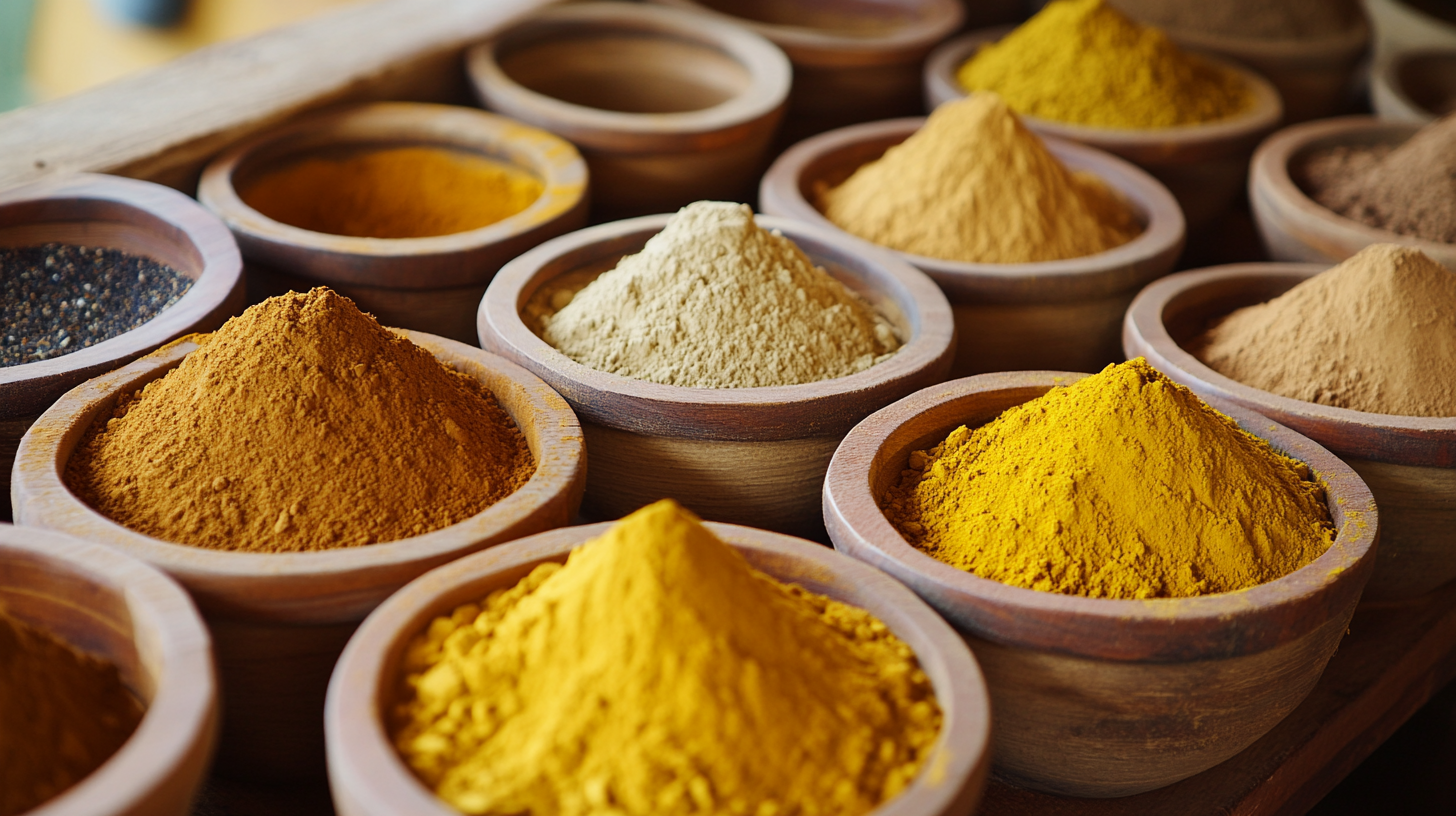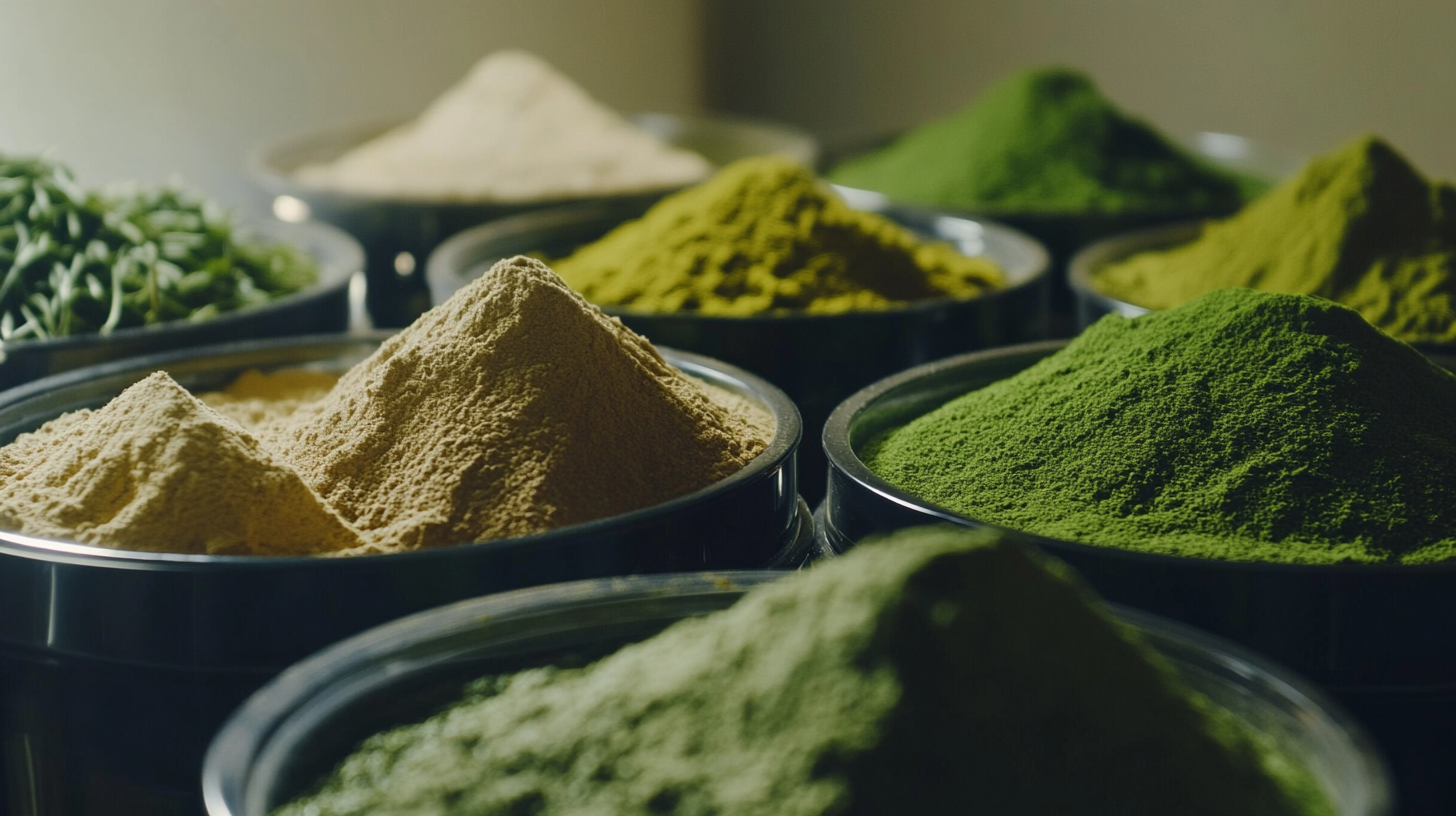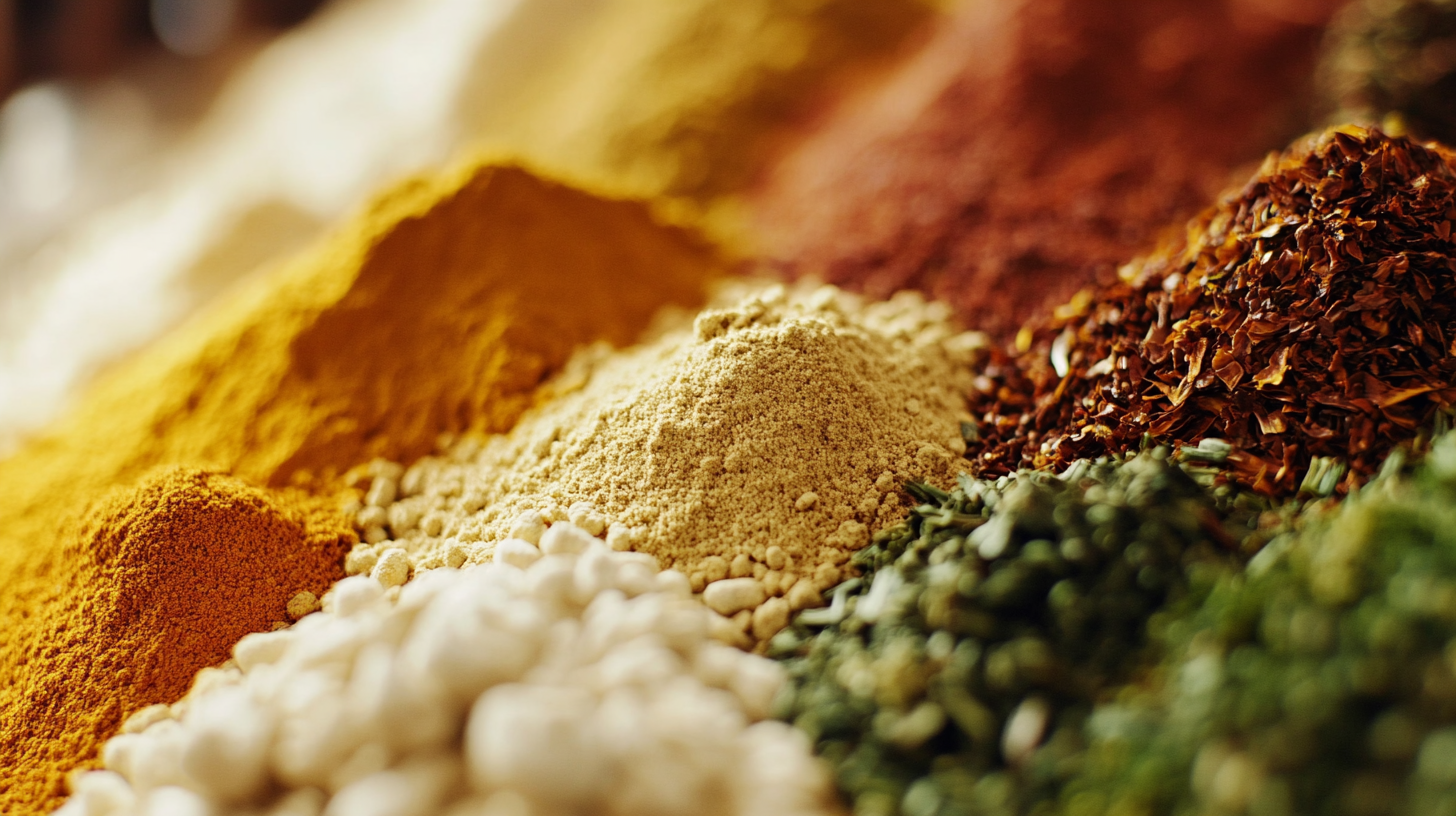50% Response rate
Choosing Quality Herb Powder Manufacturers for Global Sourcing Success
The right choice of manufacturers for herbal powder is fast becoming a critical success factor in global sourcing, which is in a dynamic environment. The natural products have created demand for more businesses to consider quality and reliability while looking for suppliers. Sourcing herbal powders, on account of their health benefits and varied applications, needs due consideration. Sourcing the right manufacturer guarantees product authenticity and efficacy and goes a long way in upholding brand reputation and customer trust.
With global aspiration, one must understand production procedures for herbal powder. This includes measuring potential suppliers' quality standards, certifications, and ethical practices. An enhanced global sourcing strategy may hence be developed, minimizing risk and maximizing supply chain performance. This blog will discuss vital criteria for choosing quality herbal powder manufacturers, alongside practical methods to support mutually beneficial partnerships that drive sourcing success.

Importance of Quality Standards in Herb Powder Production for Global Trade Success
The herb powder quality standard is aptly suited to harmonize successful global trading, especially in light of the surging international marketing of traditional Chinese medicine. The recent enhancements in Bozhou's major exports of Chinese herbs highlight the increasing importance of conforming to these quality standards. As more enterprises become involved in TCM, it is now imperative to grasp the role played by reliable quality measures in maintaining the competitive edge in a global market. Concurrently, the other institutions, such as universities, are making advances toward the establishment of international quality standards for various kinds of herbal products. This preemptive move would not only uplift the standing of Chinese herbal medicines but would also put them onto a par with expectations worldwide in terms of safety and efficacy. By stimulating cooperation between the academia, industry, and regulators, an enormous strategic framework for quality assurance of the herb powder would be evolved. Furthermore, the entire industry associates highlight an urgent need for an integrated quality assurance system that covers the entirety of the supply chain, including raw material procurement and testing into the finished product. Guaranteeing buyers through the enforcement of rigorous and transparent quality standards about their product availability against international safety requirements would provide an opening for greater access into the market. Quality focus will therefore definitely assist to get successful international trading outcomes as the demand for herb powders becomes increasingly more oriented.

Key Metrics for Evaluating Herb Powder Manufacturers: What to Look For
When you make the decision to go global with your sourcing for herb powders, the fundamental aspect that you will need to think about is the evaluation of prospective manufacturers with respects to product quality and reliability. One of the principal parameters was manufacturer certifications. Therefore, standard certifications as those required by international quality certifications such as ISO and GMP are also the easiest evidence of commitment that these manufacturers have maintained high standards for production and safety.
Scouting and checking the sourcing practices for raw materials in their supply chain could actually lead you to full integrity in their supply chain and avoid contamination while enhancing the effective potency of the herb powders.
Another important measure is the production capacity and technology of the manufacturer. These will serve as an indicator whether the facility can deliver your required volume or stand the quality consistency. Find out what types of machinery are being utilized and what are their processes. With modern technology and efficient systems, quality of the products gets better and turnaround gets faster. Also, it is important to develop a good communication tie with the manufacturer as regards to the response in communication and even in the collaborative culture, since these factors would really affect the source partnership well.
If you want to get the best understanding of what a manufacturer is about, customer reviews and case studies are the best sources. Through other clients' experiences, you can understand how reliable the manufacturer is and how effective its products are. On the way to understanding the manufacturer in the marketplace, these research metrics provide value. Certifications and production capacities, technology, and customer feedback are powerful indicators for making well-informed choices toward successful global sourcing of quality herb powders.

The Role of Certifications in Ensuring Quality and Safety in Herb Powder Sourcing
To maintain the quality and safety of herb powders being marketed worldwide, the certification affords this aspect their utmost importance. Certification thus is vital in the process of third-party validation offered by an organization to judge that the manufacturer has adhered to required standards. The significance of certificates such as ISO, GMP, and organic seals serves both to indicate that the products have passed through stringent quality control regimes and to assure consumers who are becoming more and more concerned about the origin and safety of the food products they consume.
Manufacturers with well-known certifications are those that chiefly strive to conform to quality standards in their production processes. The certification of these manufacturers is subject to continuous audits and inspections aimed at ensuring that their herb powders are free from contaminants and produced in facilities that operate to health and safety regulations. On the other hand, certified herb powder-like products provide assurance in terms of consistency in quality to businesses and consumers, assisting them in sourcing raw ingredients for their finished products.
In the worldwide interconnected marketplace, certified herb powders can, therefore, build the goodwill for the brand and create pathways for international trading opportunities. Retailers and distributors tend to cooperate more with suppliers who demonstrate their commitment to the quality and safety by virtue of their certification. Thus, going forward, companies intending to thrive in the competitive market of herb powders should prioritize working with certified manufacturers, ensuring, in effect, their sourcing success and customer satisfaction.

Market Trends: Growth Statistics in the Global Herb Powder Industry and Implications for Sourcing
The herb powder industry around the world is booming and flourishing as it has now seen an increasing consumer demand for natural and health-oriented products. The latest market reports have it that the industry will expand at a CAGR of about 6.5% and touch the figure of nearly $10 billion in the next five years. This upsurge is attributed to the rise of herbal supplements and the green acceptance of plant-based alternatives in food and beverages. As consumers become more health-conscious, they are drawn toward herbs recognized for their medicinal properties. That's the reason companies are looking for herb powder manufacturers that are high-octane sources of quality products."
These trends have far-reaching sourcing implications. Suppliers will have to suggest 100 percent standards when sourcing, because there are too many fake products in the market which destroy consumer trust. Close ties with optimal suppliers of good reputation would help ensure that the herb powders used in products meet robust safety and efficacy standards. In addition, organizations should focus on regional sourcing dynamics, as the actual availability in specific geographical areas can determine both cost and availability for certain herbs. This is how organizations can tap into developing opportunities while not compromising quality and sustainability linking sourcing processes and emerging market growth trajectories.
Strategies for Building Strong Relationships with Herb Powder Suppliers to Enhance Quality Control
It is important to develop strong relationships with suppliers of herb powder for the global sourcing of high-quality products. A new report from IBISWorld indicates an annualized growth rate of 8.3% for the herbal supplement industry in the last five years, thus making it more important for organizations to source high-quality herb powders to meet increases in consumer demand. By maintaining open communication and an integrative approach with suppliers, organizations can create opportunities for improving transparency in the entire quality control process.
For example, regular quality audits and feedback loops are examples of the strategies that greatly enhance supplier performance. According to an analysis in Supply Chain Management Review, some companies engage in such proactive relationship management with their suppliers report a 14% increase in product quality. This approach not only lessens the risk of poor quality but also prepares companies for the long-term.
Additionally, data analytics can help provide insights into supplier performance and overall supply chain transparency. Deloitte research states that companies with high visibility in their supply chain cut the costs of product liability by 30%. Such strategic planning is expected to make the supply chain regulatory and bring trust in the brand and goodwill from consumers, which will enhance reputation and loyalty.